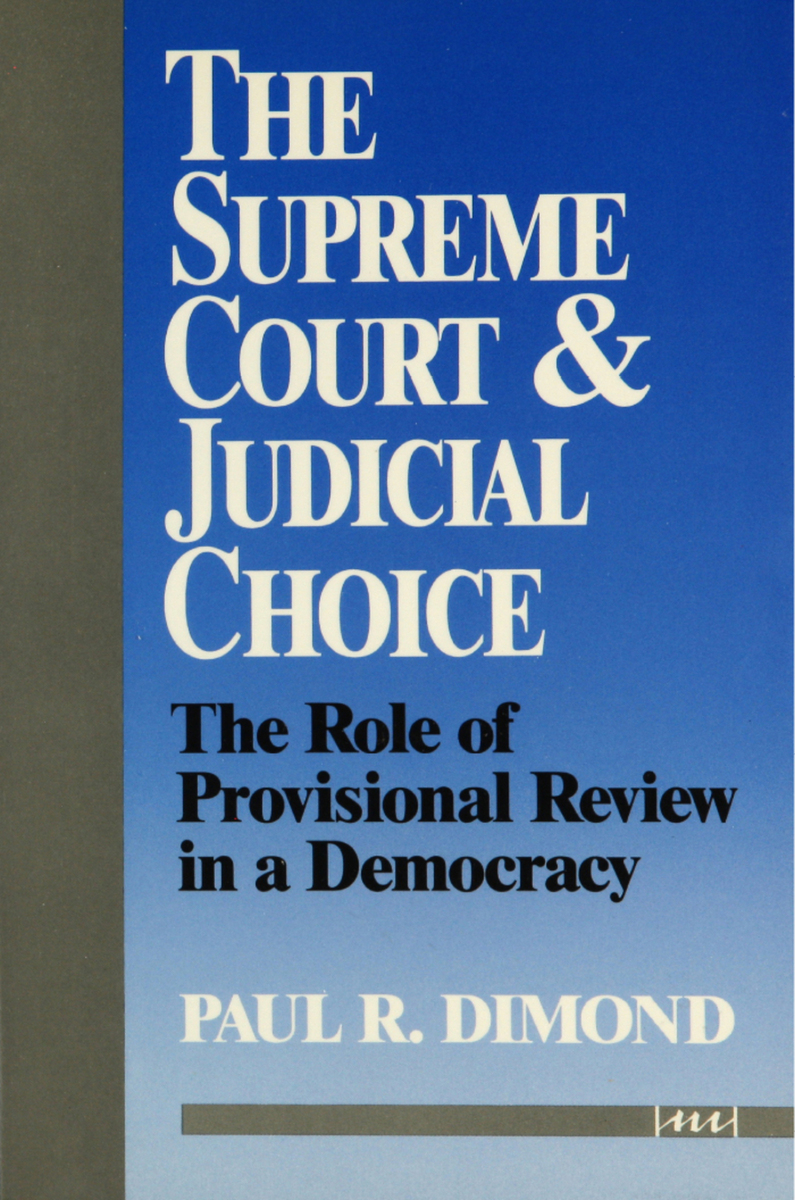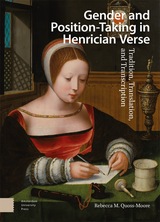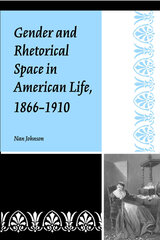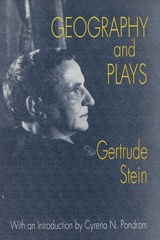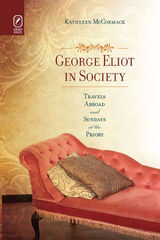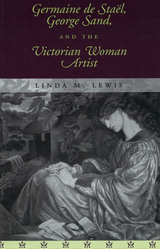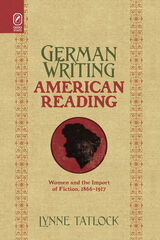Supreme Court and Judicial Choice
University of Michigan Press, 1989
Cloth: 978-0-472-10103-0 | eISBN: 978-0-472-22335-0 (standard)
See other books on: Dimond, Paul R. | Judicial Choice | Law | Political Science | Supreme Court
See other titles from University of Michigan Press
Cloth: 978-0-472-10103-0 | eISBN: 978-0-472-22335-0 (standard)
ABOUT THIS BOOK | AUTHOR BIOGRAPHY | REQUEST ACCESSIBLE FILE
ABOUT THIS BOOK
The conventional wisdom holds that the Supreme Court provides the final word as the Court tells the people what the Constitution commands. In interpreting uncertain constitutional text, however, the Court is not provided with a single answer but must, itself, make hard choices. Such choices by an unelected Court appear to conflict with the basic principle of majority rule by the people through their elected representatives in our democracy. Over time, through public debate, new arguments before the Court, legislation, new appointments to the Court, and constitutional amendments, however, the Court's prior judgements evolve, are distinguished or modified, and are even directly overturned. Viewed from this longer term perspective, the Court's supposedly final rulings can therefore be seen as an integral part of an ongoing national dialogue over the meaning of the Constitution. This understanding makes judicial review more consistent with our tradition of government by the people rather than by the Court. To explore this understanding, The Supreme Court and Judicial Choice develops a provisional approach to judicial review under which a surprisingly large number of judicial rulings would be subject to modification by ordinary legistlation enacted by Congress. Far from rendering the Court a powerless subject of Congress, this proposal would enhance the vital role of the Court in stimulating and shaping the ongoing dialogue with the people over the meaning of the Constitution.
See other books on: Dimond, Paul R. | Judicial Choice | Law | Political Science | Supreme Court
See other titles from University of Michigan Press
